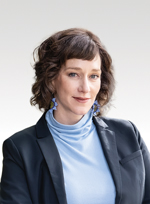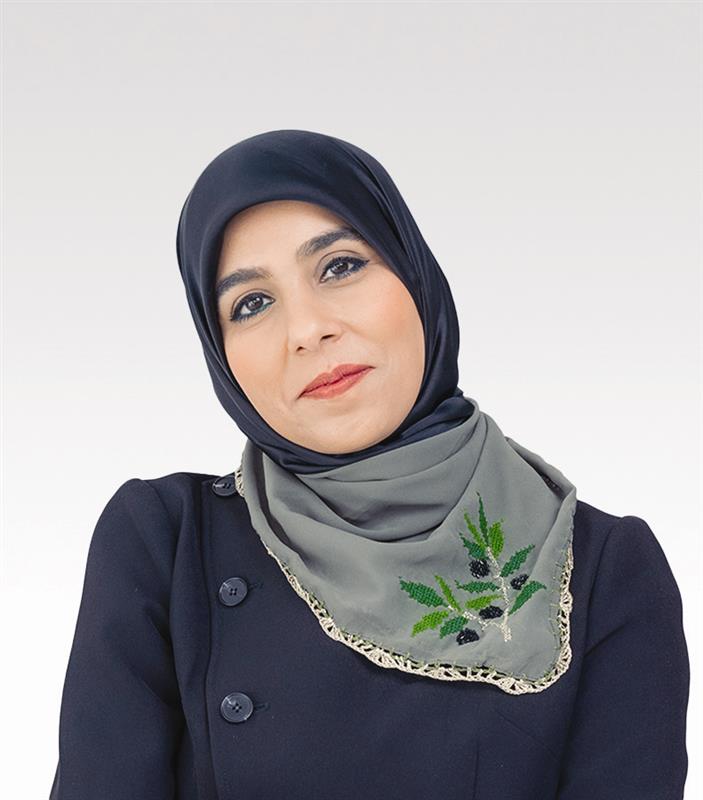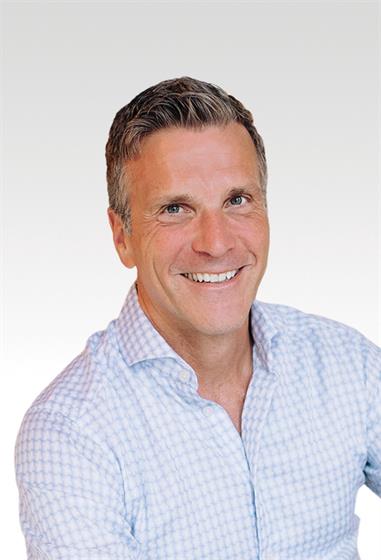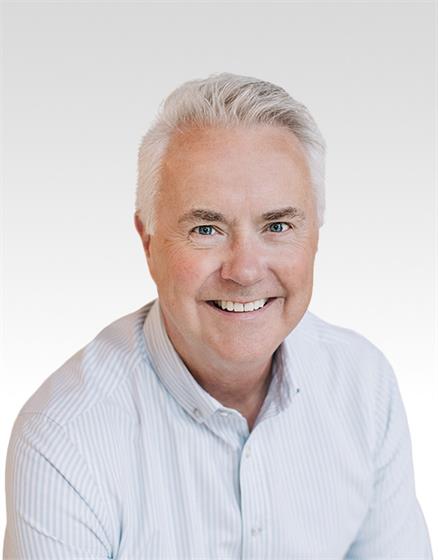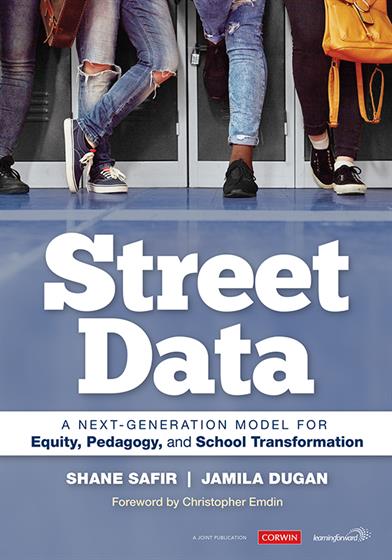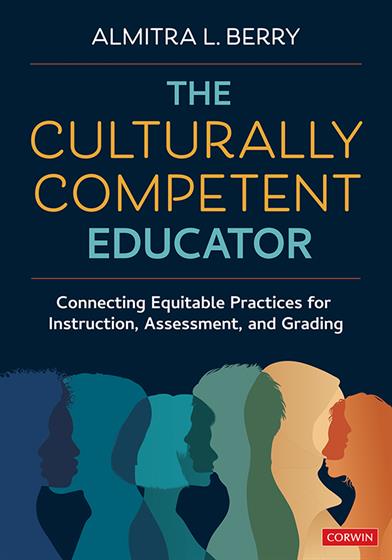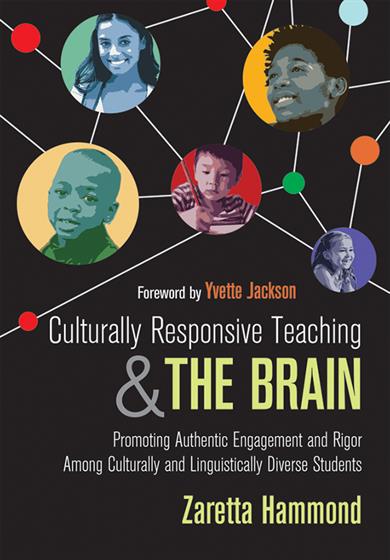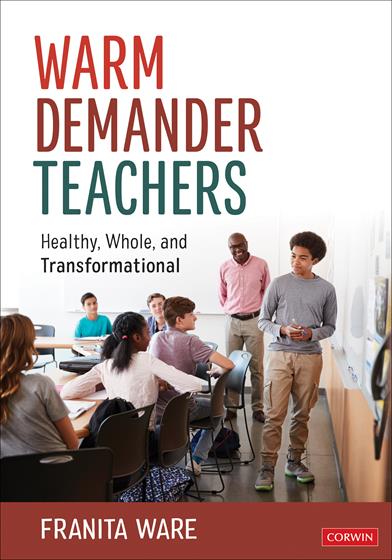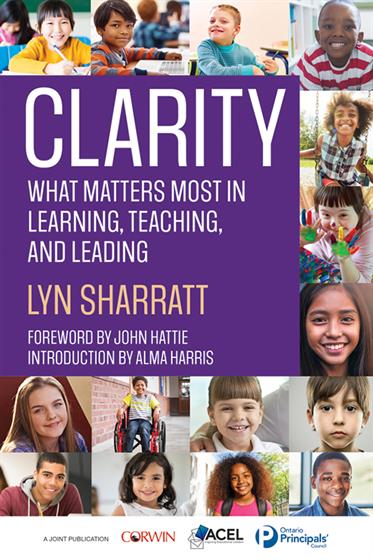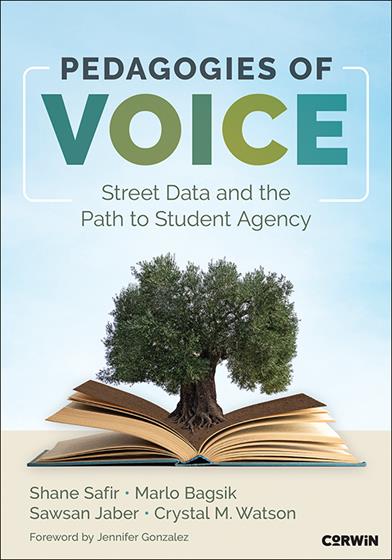SAWSAN
JABER:
Like, feel hope and radical love, this hope that feels so important right now because a lot of-- it feels hopeless.
The future is a little scary for many-- for most, I think. And so to feel like this book gives us something that we
can do that's actionable. It's not a philosophical book. It's not a book that's sitting in like-- it's not a formula,
either. But it's a book that really talks about the opportunity for us to make that difference, and to love our
students and to lead through love, and to love each other and to create community.
NARRATOR: Welcome to Corwin's Leaders Coaching Leaders podcast with hosts Peter DeWitt and Michael Nelson. This
podcast is from education leaders for education leaders. Every week, Peter, Mike, and our guests get together to
share ideas, put research into practice, and ensure that every student is learning not by chance but by design.
PETER DEWITT: Shane Safir, Sawsan Jaber, welcome to Leaders Coaching Leaders podcast.
SHANE SAFIR: Thank you so much for having us.
SAWSAN
JABER:
Yes, thank you.
PETER DEWITT: So talk to us a little bit about-- give us a little bit of your background. Sawsan, I'm going to start with you. Give us
a little bit of your background. We know you're located in Illinois right now, but give us a little more.
SAWSAN
JABER:
So in education, this is my 26th year. I consider myself a global educator. I've kind of worked around the world. I
physically lived in several countries, but I worked through my consulting with a lot of different countries. I'm
currently a high school department chair-- an English department chair.
And I am a firm believer that education is the conduit to healing our world and transforming it, and that teachers
are the most powerful people in the world, and that we, as teachers in classrooms, are crafting the future of
tomorrow by determining what kind of experiences kids have in our spaces and how to really cultivate self-love in
a lot of different things for them that ultimately impact the shape of society. And so I feel like teachers are
people that need to be loved and cared for because of the important role that they play in society as a whole.
So I'm honored to be here and honored to speak on some of the topics that we're going to be talking about, but
also to be a lifelong educator and somebody who takes a lot of pride in the field.
PETER DEWITT: Oh my goodness, I think we can just stop the podcast. [LAUGHS]
[INTERPOSING VOICES]
PETER DEWITT: Wow, that is a mic drop. Thank you. That is beautifully said. And, Shane, you really don't need an introduction,
but we'd like one anyway.
SHANE SAFIR: How do I follow Sawsan? Impossible. I'm really grateful to be here with you all. I am, gosh, I guess, coming up on
30 years in the field. I started my career in the late '90s teaching in urban schools in San Francisco and Oakland,
and I became a principal on the heels of No Child Left Behind.
So that was a very profound shift in paradigms. And when I think about what it was like to lead a small,
redesigned public high school with pretty progressive values in that climate, there was a lot of friction and a lot of
tension. And even though this moment is different in many ways, I feel like we cut our teeth in the early 2000s
with some of the pushback and resistance.
I'm a mom of two beautiful boys. I am a partner. I am a sister. I am a part of this beautiful team of folks offering
this next book into the world that has become really part of my chosen family. And I'm a queer woman of Irish
and Jewish descent and just really grateful to be here and in community with you all this morning.
Community is feeling very, very important to me right now. Every moment of connection and human connection
is feeling really grounding in the times that we're in.
MICHAEL
NELSON:
I'm a little emotional. Thank you for that. It was just a-- both of you, thank you for those words. I think, now, as
you said, Shane, more than ever, the tenderness of the words in which we use and the care in which we put them
together is so critically important at this point. But let's get on with this new book.
So right from the preface, you describe it as an invitation, so it doesn't surprise me that the language that the
two of you used-- and it's one that challenges educators to dismantle oppressive systems and reignite their spark
for teaching. So ultimately, what do you hope educators will feel and do after reading the book? And, Shane, let's
go ahead and start with you.
SHANE SAFIR: Thank you for that question. I love that you asked how will people feel and not just what will they do. I love the
quality of that question and the thoughtfulness of it.
So just a little background, this book really emerged out of chapter 5 ofS treet Data, which is about a pedagogy
of voice and the North Star of student agency. And as Street Data sort of came into the world and really reached
so many more people than I had anticipated-- over a hundred thousand now across the globe, I believe-- a lot of
people seem to be wrestling with pedagogy. Like, this is a wonderful model. I want to implement it. I want to do
it. But how do we penetrate the classroom? How do we transform, as Sawsan mentioned earlier, the daily
experiences that kids have?
And so this book is born from that inquiry and that question. And I knew I couldn't do it alone. I wasn't sure I
wanted to write another book.
[LAUGHTER]
But I didn't--
MICHAEL
NELSON:
I'll tell you why I'm laughing, but let's keep going, yes.
SHANE SAFIR: So what ended up happening is that, organically, our team came together-- Sawsan, myself, Marlo Bagsik, and
Crystal Watson, who are also extraordinary educators. And we decided before even writing a proposal to use the
Street Data method to listen to teachers. We listened to about 25 or 30 teachers across North America, and we
just did focus groups. And from those focus groups, themes emerged, longings emerged, hopes emerged, and
that really helped us craft the proposal that is now going to be a book in a few months.
What I want people to feel is really electrified. I want them to feel a deep, embodied sense of agency in a time
when we are persuaded every day that we have no power-- that people will feel powerful, able to impact and
transform the experiences of children and/or adults that they care for, that they serve.
And what I want them to do is be ready to try new practices, to push their own pedagogy, to move in new
directions, even uncomfortable ones, but to not do that alone, to do that through this vehicle that we talk about
in the book of microcommunities, which is really what the four of us became. And so there's this kind of meta
thing in the book where we're writing through our own experience and through our own formation of this deep
community. And we're also inviting people to form that kind of interconnected body of transformation through
the book.
MICHAEL
NELSON:
I do want to hear Sawsan a little bit about the feel. And Shane, I didn't-- there are so many things I could say, but
let's let Sawsan talk. And then Peter will bring a collective of what the two of you have said together before we
respond to what you said, Shane, because there's a lot to respond to. Sawsan?
SAWSAN
JABER:
I think all the things Shane said, and I would only add to it-- is feel hope and radical love, this hope that feels so
important right now because a lot of-- it feels hopeless. The future is a little scary for many-- for most, I think.
And so to feel like this book gives us something that we can do that's actionable. It's not a philosophical book. It's
not a book that's sitting in like-- it's not a formula, either. But it's a book that really talks about the opportunity
for us to make that difference, and to love our students and to lead through love, and to love each other and to
create community.
And deep-rooted understandings, I think that's one of the things that we-- we always have conversations about
equity and this and that and the other thing. And what this book is rooted in is all of those things by humanizing
them without calling them all of those keywords and buzzwords. It's not scary. It is really seeing each other and
loving each other and elevating each other's stories.
And we have really integrated big parts of ourselves in the book in order to elevate and highlight those things
because we come from very different backgrounds religiously and racially and gender and everything that makes
people different. We are very different. And so we've really weaved in our personal lived experiences and how
that has really shaped us as educators and as learners in this space, and shaped our need to see these things
happening in our classrooms in order for us to do the healing that's so necessary because that's the space where
it's going to happen.
When kids feel seen and feel like they have voice and agency, there's healing happening in that space. And we
can heal the world one classroom at a time. I think that is a really big part of this work. And this book is all the
different ways that that healing work can actually happen.
PETER DEWITT: OK, I have to tell you that I need this conversation today. It really is just not at all what I expected when we said
we were going to start the podcast. But I am so grateful that the two of you are on here because how you're
talking is how I feel about Mike. I'm just going to say it. I wrote alone for many years, and then I found Mike, and
he's just been incredible.
And I always tell people, once you find a good collaborator, never let them go because what you just described is
how he helps me feel.
SHANE SAFIR: I love it.
PETER DEWITT: So there are so many things I want to be able to take a breath after you speak because there's just so much to
breathe in with what you're saying. And you are talking about things that other people are avoiding talking
about, which drives me crazy, too.
So for example, I just recently had to have a large webinar on absenteeism, and we took in questions from
participants. And one of the things that I noticed as a common theme is that there is this sense of people just not
feeling like they have any control whatsoever. It was, "If parents just did this," "Kids don't care about school like
they used to--" all these things.
And I know that it came out of a sense of frustration. In some cases, it came out of a sense of anger. It came out
of a sense of, "I don't know what to do." But I just noticed that the common theme through a lot of the questions--
and there were hundreds of questions-- was just this sense of, "I don't have control over any of this."
How do you both have such a way-- because you don't just talk about it. I can tell, in the moments that we've
gotten to know each other, that you live it. So what brought you-- and, Sawsan, I'm going to talk to you first. What
brought you to this place where you're having this experience of teaching where many people don't feel like they
have a voice-- and not only does your voice resonate and just exude out of you, but you want to help other
people have it. Where does that come from for you?
SAWSAN
JABER:
Let's try to get through this one without crying because-- oof. I think it comes from being a student who's never
been seen in school and whose lived experience has never been validated in the world. I'm Palestinian, and that
has a lot of meanings today.
PETER DEWITT: Mm-hmm.
SAWSAN
JABER:
And so I think it comes from being an educator and having more power and locus of control, but still feeling
invisible and still struggling to self-validate and, in a lot of times, as a younger learner and educator, not being
able to name those things that were happening to you that were defining. I call them macroaggressions because
they're not small. They define your self-concept. They define your identity.
And thinking to myself, I remember the first time I saw accurate representation of myself, and it was a pin in an
expo, in a conference. And it was just a visual image of a girl who looked like my daughter, who was wearing her
hijab and was wearing jeans and a T-shirt, and I could not stop crying-- and it was a pin. And I was 40 years old,
and I was just looking at it, and I was like, why am I having such a deep emotional reaction to a pin? And it
occurred to me that it was the first time I saw accurate representation of myself in an educational setting.
And then I thought to myself, how impactful would it be if I actually had an authentic experience in a classroom
where teachers were being intentional about creating a learning experience that helped me see myself as
something that was valid and beautiful and invited all of me into this space? What kind of a learner, what kind of
a human, what kind of a young adult would I have been if I had an experience like that, where someone saw all
of those things in a way that was powerful to them and for me?
And why aren't we doing that work? We keep talking about wanting students to be prepared once they leave us
in K through 12. And prepared for what, this capitalistic perspective where we want kids to get a good education
so that they can get a good job and make money? But what happened to empathy and love and diversity and
appreciating and community?
And the fact that technology, and especially with AI, now is making our world so much smaller, how do we
actually prepare students for-- in Illinois, we're so redlined that a lot of kids go to school with kids who look like
them. How do we prepare them to go out into communities where kids don't look like them and thrive and still
feel like who they are is important, that their language and the cultures that they bring into the space is also still
valid even though it's different?
And so I think it was grappling with those questions and just thinking to myself that if I can help to create that
experience and read the world with my students and open doors for them to have these experiences where they
create mirrors of themselves instead of me being a gatekeeper, and then those mirrors become windows for
each other, and we can create these communities of love that are built on deep understanding of each other, of
our lived experiences, and really start to understand things like lived experiences shape people's values,
perspectives, and we can be in community with each other for different and still love each other and collaborate
and be a community with whatever that means and define that as a collective, how is that going to transform
their experiences outside?
So it started with a series of questioning of, like, what does that look like? And it was really personal for me
because I am also a mother of three children, and my daughter was asked to apologize for 9/11 in front of her
10th-grade English class in a school, in a classroom with many kids who look like her. And so that was a lifedefining
moment for her. And I kept thinking, like, this hasn't changed since I was a student.
And so how do teachers have a responsibility to, first, start doing the internal work that's necessary but also start
to create these spaces where we're disrupting that and really giving kids an opportunity to use the skills that
we're teaching them as an English teacher in ways that are meaningful and responsive and ways that are going
to be empowering so that they can choose a pathway for themselves as opposed to the society choosing that for
them?
PETER DEWITT: Well, let me just say that that answer alone, for people listening, might be their entry point into the conversation
because where I've done my greatest learning is through conversation. And last season, Michael and I had
Lauren Long, who's a New York Times bestselling children's book author. He's one of my favorite illustrators in
the world. We talked about inclusion and positive representations within picture books. And Mike and I are both
former primary school teachers where we worked in diverse schools.
And that's exactly what we did-- bringing in not only just picture books that help look like the students in the
classroom, but it was a positive representation of the students. And the way you just answered it, for people
listening, might be their entry point into, "How do I move forward to be able to do this work?" So thank you for
that.
Shane, what about you? Because you certainly embody that. I mean,S treet Data is all about getting those stories
and testimonials and all of those things that lead to deeper learning but being a better human. I feel like it does
both. How did you get there?
SHANE SAFIR: So many layers to that question. I'm also feeling a little bit of tenderness around it. So first of all, I just want to
say that Sawsan has gifted the field with some incredibly profound stories in this book from her experience as a
human being, as a teacher, that I won't give a spoiler. But she and I co-wrote two of the chapters, and they're
really woven into her personal stories. And they're just incredible, and I think there's going to be so much
learning from those disclosures and narratives.
I think, for me, the book is organized around this agency framework that was first inS treet Data, although it's
slightly shifted in this book. And the four domains of agency we write toward are learner identity, belonging,
inquiry, and efficacy. And while I feel connected to all of them, the ones on my heart today are belonging and
inquiry. And maybe that's partly how I can answer your question.
So for belonging, I think, looking back, I never felt like I belonged as a child and a young person. I didn't feel that
I belonged in my family for really complex reasons. And I certainly, as a young, queer person growing up in the
'80s, didn't feel like I belonged really in the society at all and internalized that shame for a long time.
And I feel that my connection to or my longing for belonging has continued in my parenting journey with two
children who've experienced a lot of marginalization around different axes of identity. I have a 15 and a 19-yearold,
and their schooling journey has been very nonlinear, very difficult. And I think I've seen just so many
instances where they felt marginalized. And that call for how do we create spaces where children feel, as Sawsan
said, so beautifully seen and valued and understood and connected and loved is at the heart of this book for me.
And I think the inquiry piece, which-- that chapter is one of my favorites in the book. I don't how you feel about it,
Sawsan. But I've been thinking a lot about being of Jewish descent and the role of inquiry and questioning and
dialogue in Jewish epistemology or ways of being.
And I grew up with my grandparents on my dad's side, just spent a lot of time with them. And I just remember
being around their dinner table and just talking about the world and talking about ideas and talking about
politics. And I remember both of them, but especially my grandma, who was my person, Grandma Kerry, just
having this real interest in what I had to say as a child and really caring about my voice in a way that a lot of
adults didn't.
And so I just feel like some of that sense of voice and curiosity and dialogue comes from those experiences. I've
been still really thinking about how that happened. But I love a classroom where kids are talking. I had a noisy
classroom, always. As a teacher, I love a classroom where children see each other and are facing each other, and
are moving and talking and in dialogue. And this book offers a lot of ways to do that, a lot of operation, a lot of
pedagogies and moves and approaches to do that.
So that's a couple of the reasons why I think I continue to wrestle with who I am in the work. And that's a lifelong
journey, and I'm so lucky I get to do it with my sister Sawsan, and Marlo and Crystal as well.
SAWSAN
JABER:
You brought us together. She keeps saying she's lucky. We're the lucky ones. She could have done this on her
own. She knows that because she did do it on her own before. And so she brought us into this project, and she
created this beautiful space. And we get to share that with the world.
SHANE SAFIR: It's really a gift, as you two know, to get to collaborate on a project like this. I mean, I know that it's going to have
so much more depth because our four voices are woven into it. And Sawsan wrote a dedication at the beginning
to solidarity. That's almost really like a poem, and it's so beautiful. And I think, as we bring the book into the
world, we'll be modeling that and enacting that and talking about what that means in these times where there's
so much division.
SAWSAN
JABER:
As that's what it's about. I'm just going to add that piece. This is what our-- when we talk about the hard work
and the healing work, the world needs that solidarity. And so, as an educator with your positionality, what does it
mean to be in solidarity with those most at the margins? And so Street Data started that conversation, and Shane
shared her genius with the world and inspired all of us.
And this is a more internal-- kind of like, now that you're in a classroom, even if the world is telling you in all the
ways that the world is telling us right now that this work is hard, and it's scary, and trying to keep you from doing
it, this book says you have locus of control. And when you teach with love, and you show up with this mindset of,
like, all of these beautiful students and everything that they bring into our classrooms every single day-- their
voices-- are so powerful and so valid, and their stories and all of these things that they bring with them are
important, then that by itself is the most important way of seeing students and validating them and helping them
to grow.
Once that foundation is there, all the other skills and the other things that we talk about, that comes into the
picture, but it's really that foundation of grounding them in, again, that radical love piece that we talked about
earlier. And so, Shane, though, the two books are so interwoven with each other, and I think that the process that
the books were written were also bringing that out in a lot of different ways.
MICHAEL
NELSON:
Well, let's continue going down this path a little bit. And you talked about practicality, and maybe that's a little
bit of embedded in my question a bit. So here's where I'm going. One of the things that Peter and I have included
in our book-- and I just have to say, Peter, I'm going to get to where these two are in their book process. You just
need to know, I had a devastating editing day yesterday. And I don't know if you went through that in the book
process.
SHANE SAFIR: Always. Yeah.
MICHAEL
NELSON:
And it was like-- we're at that point. We turn the book in, we're getting the edits back. We have a wonderful
editor, but it's like-- I was emotionally drained. And to see you on the other side of it, talking about the joyful, oh,
this is my favorite chapter, da da da da, I'm like, oh, I'm going to get there one day.
SHANE SAFIR: It wasn't like that every day, believe me.
MICHAEL
NELSON:
Yeah, so a little personal anecdote. But in our book, we talk about how we're programmed as humans and often,
people-- when you're trying to do a goal, or you're trying to do something, sometimes, it's best to start with the
non-examples because the human brain seems to lock into that a little bit more than the examples. And so you
have a phrase that says, "We simply can't live like this any longer." So what are some of the most harmful,
business-as-usual practices, the non-examples in education today that silence student voice?
SHANE SAFIR: Who would you like to start?
PETER DEWITT: Shane, let's start with you.
SHANE SAFIR: Well, unfortunately, there are a lot of examples. [LAUGHS] But I think I could summarize many of them in the
phrase from Street Data that appears in this book as well, which is "a pedagogy of compliance." And really, the
roots of this need to be attributed to Paulo Freire's work, which was so instrumental in my development as a
teacher. He talked about the banking model of education and viewing students as these empty vessels that we're
just depositing knowledge into.
And I think this pedagogy of compliance, as we write about it, Sawsan and I, in the book, it sort of shows up in
these toxins in the classroom, whether that is deficit thinking, binary thinking-- there's good children and bad
children. There's high learners and low learners-- all this language that is rooted in really a colonial mindset.
We talk about scarcity mindset. We talk about containment. That's a piece I feel very connected to, this notion
that learning can only happen in a desk within the four walls of the classroom, within the school building. And the
book actually closes with an incredibly beautiful case study from British Columbia by a colleague of ours who's an
Indigenous, land-based educator about learning on the land.
So I just think that the pedagogy of compliance is so important because there are all these systems outside of
the classroom that can impinge upon us. If you think of the Star Wars scene with the garbage, the walls closing
in-- I always think about that. And it can feel so suffocating and paralyzing for educators. But as Sawsan said,
within this space of a classroom, we actually do have agency to uproot these toxins and to move our ways of
being and to move our pedagogies in different directions. We actually can do that even in the most oppressive
circumstances.
And that is what I think we are offering through this book. And part of that is just naming the ways that we can
internalize and enact these really toxic, compliance-oriented power over ways of being. What would you add,
Sawsan, or what would you--
SAWSAN
JABER:
I would just say it's liberating, the parts of the book that outline those toxins, because, a lot of times, we're
products of our own communities and our own education. Like, many of us have learned this way. Therefore, we
teach this way, and until you come across someone who's able to show you a different way or to disrupt that. Or
you walk into a classroom, and you're like, wow, this is so powerful.
I always tell teachers, when you're teaching and centering students-- I have never written a referral, and this is
my 26th year in education. I have never-- I don't even know how to write a referral. I don't know where they are
in the system.
SHANE SAFIR: I have.
SAWSAN
JABER:
I've never needed it because the kids want to be there. They want to do the work. You're actually-- it's liberating.
It's liberating for them. It's liberating as a teacher because you're not tying yourself to the way things are
"supposed" to be. It is what it is in that space. And the kids and you collectively co-create and co-design to make
it what it's supposed to be. And that can look different tomorrow, and it could look different from yesterday.
There's this organic process that happens that also really elevates community again and brings forth the
community because all of this is about co-designing. It's about honoring our ancestors and creating for the
future. We're thinking about yesterday, and we're thinking about tomorrow in this book. And we're thinking about
how all of those things are really important because we can't honor tomorrow and prepare for tomorrow if we're
not thinking about yesterday and the people that allowed us to be here and that we're honoring in the spaces
that we're taking part in.
And so there's this liberating kind of-- it's a formula for liberation for our students, for our student voices, for the
teachers that are in the space who feel constrained by the systems that are created and by these rules that
somebody said are the way that we should be teaching because, in this book, we're saying it doesn't have to look
that way. It can look in all of these different ways that are so much more powerful and impactful for everybody
who's involved-- because I learn from my students all the time. They teach me. This is a community of learning
because we learn from each other. That's really, really powerful, and I think that's something that we really
elevate and highlight in the book as well. There's no expert here. We're all experts.
PETER DEWITT: And we're all students. I think we all-- Mike and I always talk about how we have a learner's mindset. When we
get introduced as experts, that bothers me because I don't feel like I'm an expert. I feel like I'm always learning.
So Sawsan, I want to continue that conversation, actually, that you talked about because I sometimes think that
people are constrained because of something they're telling themselves-- because I used to be a school principal,
and I would have teachers every once in a while that would say, well, I didn't want to do that, Peter, because I
thought you'd get mad at me.
And I was thinking, how did they connect that? Because I've never talked about that. So why would they
suddenly think there was a rule when maybe the policy was in their head? But on the other side of things, we
know, these days, people do get in trouble for certain things, and then I think there's something in the middle.
So I'm going to combine a couple of things because you talk about the role of educator agency. And how do you--
what mindset shifts or strategies do you suggest for teachers and leaders who feel constrained by policy testing
bureaucracy? But I think there's actually something a little bit more simple about this, too. They're afraid of
saying the wrong thing. They're afraid of looking at Sawsan and saying the wrong thing.
They're afraid-- because I did my doctoral research many years ago in safeguarding LGBTQ students. And one of
the things that I found is that people were nervous about having a conversation because they were worried that
they were going to say the wrong thing to me.
SHANE SAFIR: Yep, yeah.
PETER DEWITT: And I moderate a show for Education Week called A Seat at the Table. My second guest five years ago was
Zaretta Hammond, and I started off with a question. And Zaretta just said, let's unpack what you just said, and I
got the finger wave. And I went, oh, no, I'm in trouble, and I still have 55 minutes to go.
Best learning lesson for me ever. And Zaretta was a guest on our show. She's been a guest on season 9 of
Leaders Coaching Leaders. I'm not afraid to say the wrong thing because I feel like it can turn into a really good
learning lesson if I do.
So when you talk about the role of educator agency, and you're talking about mindset shifts or strategies for
people that do feel constrained, we talk about policy testing bureaucracy. But I also think it's back to, "I'm just
afraid to say the wrong thing." So, Sawsan, what strategies or advice do you have for them for those mindset
shifts?
SAWSAN
JABER:
I think we talk about this in the book, and there's a little section that we talk about being equity instead of doing
equity, like being what you are. Say you want kids modeling that for students. And a lot of that comes with, first,
being comfortable with something other than yourself.
I remember I did a training for 40 administrators at one point. And we gave them a small assignment-- it was a
two-day training-- to go back and ask questions to somebody in their inner circle who didn't look like them. All
but two came back the next day and said they didn't have anybody in their inner circle who didn't look like them.
And therein is a big problem because how do you show up in front of students who don't look like you every
single day authentically if you are surrounding yourself when you have choice and positioning yourself to only be
around people who look like you?
And so I think that those are big things. It's getting comfortable first with being curious and asking questions.
And a mentor once told me, lead with your ears and always listen. Take it in, but also embrace the fact that
you're going to make mistakes-- and that's OK. We tell students to take risks and make mistakes and hopefully
learn from those mistakes. That's what we're encouraging kids to do.
And I think, as teachers, it's just as important as embracing things other than the traditional ways that we were
taught as a teacher and experimenting and taking risks with some of those things, obviously without causing
harm because, like we said earlier, those are macroaggressions, and they're life-defining.
So you don't want to just be haphazard, but you want to make sure that you are doing the best that you can and
surrounding yourself with people so that this becomes your lived experience, too, and it's no longer as big a risk
as you really knowing nothing and starting from ground zero, like you have something to work from, but also
trusting students.
I don't want to be the gatekeeper and decide for my students what is a culturally responsive text. I want that to
come from them. And so I know that I teach in a primarily Latin school district, and I don't share identity markers
with most of the students that I serve. So this is a place for me to take a step back and allow and create space
for my community of students and parents and teachers who share those identity markers to take the lead as I
learn and listen and allow them to choose the text and create the text, as opposed to me being the gatekeeper of
that.
I think that's where I see so much of the fault-- people who have good intentions, and when they have a lot of
Arab students, they choose The Kite Runner, even though that is not even an Arab author. And so there's those
mistakes that are made when we think that we're the sage on the stage and the expert in the space.
And so recognizing that lived experiences are going to be different, recognizing that we always have something
to learn and that, even in one community, there are so many differences, and allowing space for us to really
create authentic learning experiences where students are journaling all the time. And there's places for students
to process, where students are having opportunities to create. We do a lot of use of technology, bringing in the
technology, so kids can create outputs and share authentic outputs that tell their own stories to other audiences.
That's how I learn. And so I'm no longer the main person speaking, but I'm also, like I said earlier, a learner
among other students. That's what comes to mind initially with that. I don't know, Shane. I'm sure you can have
tons to add to that.
SHANE SAFIR: I love that answer. I'm thinking about our final chapter in the book, which is about awakening teacher voice and
agency, or educator voice and agency, and just this idea that our adult learning spaces are fractals of our
classrooms. And so we can talk about belonging and inclusion and equity and voice at the classroom. But if we're
not enacting that with educators in adult learning spaces, that gap becomes really an impasse. And it makes it
very hard to shift a school, or maybe you have a few teachers who are running counter to the culture. But it's
taxing, and eventually, a lot of them leave.
And so chapter 10 includes a beautiful table on 10 microshifts, written by our co-author Marlo and a colleague,
Jessica Wei Wong, who's brilliant. And I'll just share three of those. One is just centering teachers' collective
humanity; another is collecting and honoring teacher voice as street data; and then building professional learning
around pedagogies of voice.
And that last one is definitely like a passion for me, is thinking about what these ideas look like in teacher
community, whether it's this microcommunity notion that I shared earlier, whether it's instructional coaching
that's really oriented toward a pedagogy of voice, whether it is really designing adult learning around these ideas
of identity, belonging, inquiry, and efficacy.
I just think we can-- there's so much power in the modeling and enacting of spaces that are rooted in radical love
and connection and humanization rather than, OK, folks, that's the tool or the template or the test scores or
whatever is often untapped in our teacher learning spaces.
PETER DEWITT: Yeah, and both of those answers are deep and fantastic, and we can learn a lot from unpacking those. And one of
the things that I'm also taking away from what you're saying is that-- because it's an area that drives me crazy
from time to time-- not every situation is a monolith. You know what I mean? Not every culture is a monolith. Not
every race is a monolith. Not every-- as a gay man, it's not a monolith.
The situations can all be very different. And the stories matter. And what you take from the stories will provide
you the deeper learning. So thank you for that. And I know Mike is going to wrap it up with a really-- I could talk to
you for--
SHANE SAFIR: We'll come back another time.
PETER DEWITT: I know. I feel like--
SHANE SAFIR: [INAUDIBLE]. I love it. [LAUGHS]
PETER DEWITT: I know that Mike's going to wrap it up beautifully.
SHANE SAFIR: OK.
PETER DEWITT: I'll put pressure on him.
[LAUGHTER]
MICHAEL
NELSON:
I am. It's true. So how's that? [LAUGHS] No, here's what I'd like to do, is, Shane and Sawsan, I'd like to challenge.
I'd like to put out a challenge because what you said is more than just education.
I'm looking at the questions that I had written down. And I think one of the first questions we asked-- you
describing the book as an invitation, one that challenges educators to dismantle, and I'm thinking, one that
challenges business leaders to dismantle oppressive systems, one that challenges church leaders to dismantle
oppressive systems, one that challenges nonprofit leaders or city government officials to dismantle.
And another question was-- we simply can't live like this any longer, what are some of the most harmful business
practices in our nonprofit agency and our business that are silencing our constituents. I think there's another
book in your future, and it takes it to a more global level.
SHANE SAFIR: [LAUGHS]
MICHAEL
NELSON:
And I would love to see that because your words and wisdom, it's all there. And I think we are so grateful that
you wrote it for educators. We are truly, incredibly grateful, and we can't wait to have it in our hands. But my
challenge is your concepts in your vision and your mission for who we are as humans-- the humankind, when you
say that-- is nothing short of-- well, I don't even have a word, just absolutely wonderful and amazing, and what
we want for our society-- our students, but it is what we want for our society in general.
We are just so grateful to the two of you for joining us on Corwin'sL eaders Coaching Leaders podcast. Thank you
so much for your time, sharing your wisdom. And on behalf of Peter and myself, we just wish you a great day.
And we know our listeners are going to enjoy the last 30, 35 minutes.
SAWSAN
JABER:
Thank you.
SHANE SAFIR: Yeah, thank you both so much. This felt like a very heart-centered conversation, and I'm really appreciative for
the time with you.
[MUSIC PLAYING]
PETER DEWITT: Michael, that was a powerful conversation. And like I said at the beginning, it was different than I thought it was
going to be because, to use a word that use all the time, it just felt very much about human interconnectedness.
MICHAEL
NELSON:
It was. They are two beautiful human beings who collaborated with a few others to write what I think is going to
be a monumental book in education. So I can't wait to see it take off, to be honest.
PETER DEWITT: Yeah, Shane Safir and Sawsan Jaber. Just from the moment we asked them a question, I felt like there was just so
much goodness that came out both philosophically, practically, spiritually, all of that. And we do a lot of
interviews that focus on a lot of different topics, and this one was very much a beautiful conversation. So favorite
part for you, if you can name one, that listeners can really hone in on.
MICHAEL
NELSON:
That our students and teachers need to be beautifully seen, valued, and loved.
PETER DEWITT: Mm-hmm. And I'm going to agree with you on that one and add an "and" in the Michael Nelson philosophy of
things. Not everybody is a monolith. I think, sometimes, we look at kids, whether it's a grade level or whatever.
That's where demographic data can go awry for us, where we look at it, and we think everybody has a monolith.
They all have the same story. And that's just not true.
And that's why the whole idea of Street Data and the empathy interviews and the pieces that they talked about
were really great. And I think that's where I'm OK with ending the podcast, just because I think they pretty much
did a mic drop every time we asked them a question.
MICHAEL
NELSON:
They did. It was fantastic podcast interview and one that I know that I'm going to go back to many times and pull
parts on to use in different workshops. And yes, absolutely.
PETER DEWITT: Michael, as always, it's good to see you. And for those of you that are listening to us, we're always looking for
your feedback. We really are grateful that you're spending time either watching us on YouTube or listening to the
podcast on your favorite station. We're grateful for your time, and we hope that you loved this interview as much
as we loved engaging in it. And Michael, until next time.
MICHAEL
NELSON:
Yes, see you soon.
[MUSIC PLAYING]

